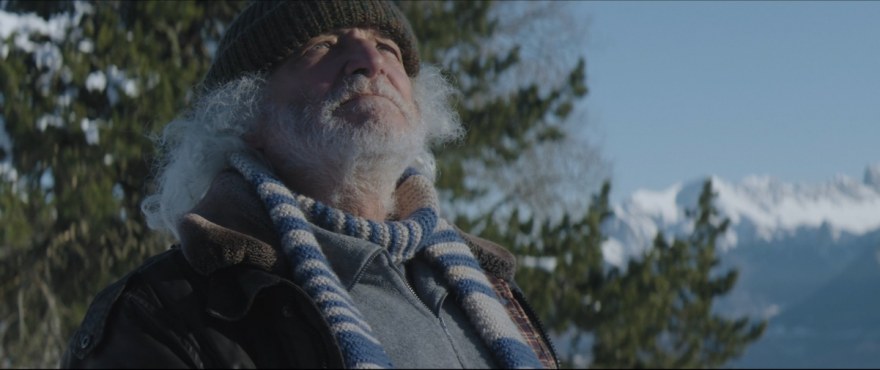Dinner with Je vais là-bas aussi
Interview with Antoine Cuevas, director of Je vais là-bas aussi
Where did you get the inspiration for Je vais là-bas aussi?
The scenario was written for the 5×2 competition organized by GREC, France 2 Shorts and the cinematheque in Grenoble. You have to write a mini-series of five 2-minute episodes with the requirement that you use the same setting for all the episodes. I wanted to write a story that takes place in a mountain refuge. It’s a place that is open to everyone and where anyone can take shelter for a night. It’s a place of where you meet people.
What do you think about how foreigners are viewed and about the questions around legal or illegal migration?
In fact, I got the idea for the scenario at the time where a far-right group made a human-chain in the Alps to block refugees’ access. This physical and symbolic action marked me deeply. The film is about the opposite gesture, an outstretched hand, help, support.
What interested you in the geographical solitude of the characters?
After the Mediterranean Sea, the Alps are a second dangerous barrier for refugees. They are often alone in a hostile environment. The mountaineer, gruff and wary, makes the decision to accompany the three young men out of an act of goodwill. They are all isolated and have no other choice but to walk together.
How did you meet the main character?
I was looking for a man who knows the mountain, animals and nature. I was helped by a director from Grenoble who read the scenario and immediately thought of Alain Manac’h. I needed someone from the area.
How did you use silence in the film?
Sounds are very pure in the middle of the mountains. We needed, in fact, to feel that we were all alone with the characters. Time almost stands still. The silence contributes to the mysteriousness of the film and the night is almost worrisome. Also, the men don’t talk to each other; there are only gestures and looks. I wanted the only words spoken, the title of the film, to be simple and kind.
Would you say that the short film format has given you any particular freedom?
You don’t know the characters’ past. And you don’t know where they are going. The short format allows you to create a vision out of the frame, to open the story up to other possibilities, to image what will happen. It gives the spectator room to project.
What are your works of reference?
Two works had a big impact on me. The film Fortuna about refugees who live within a religious community in a secluded monastery in the Alps. The comic book Le rapport de Brodeck by Manu Larcenet was a big inspiration especially his drawings of the cold and austere mountains.
Je vais là-bas aussi is being shown in the National Competition F12.








